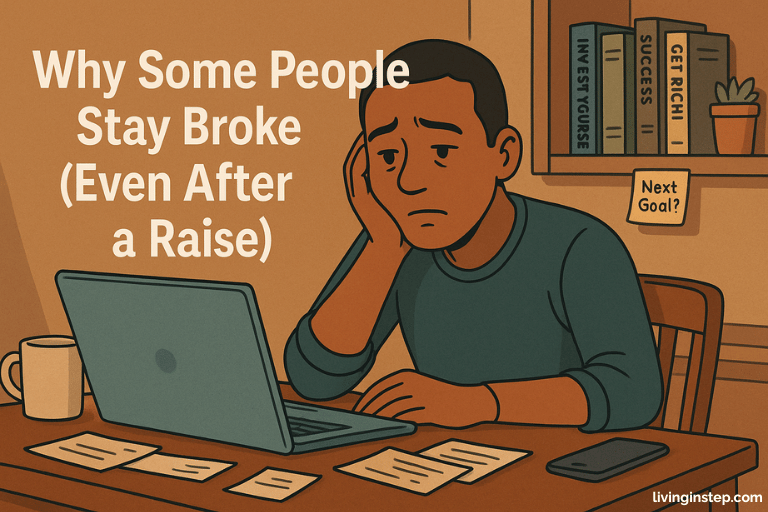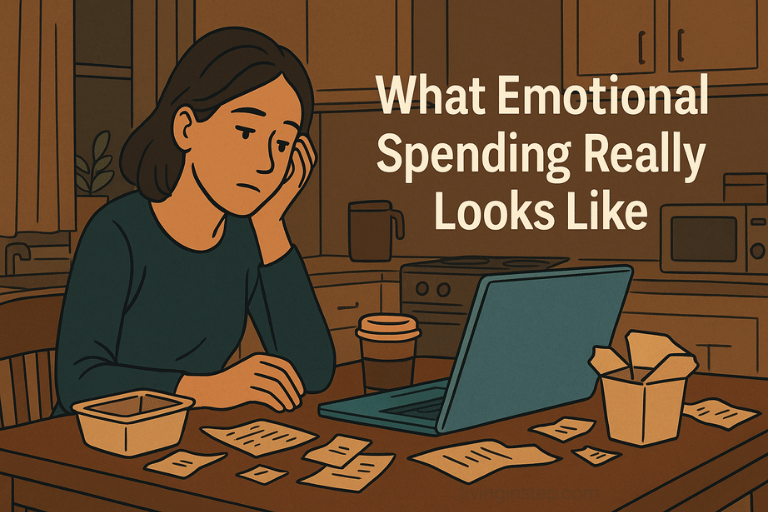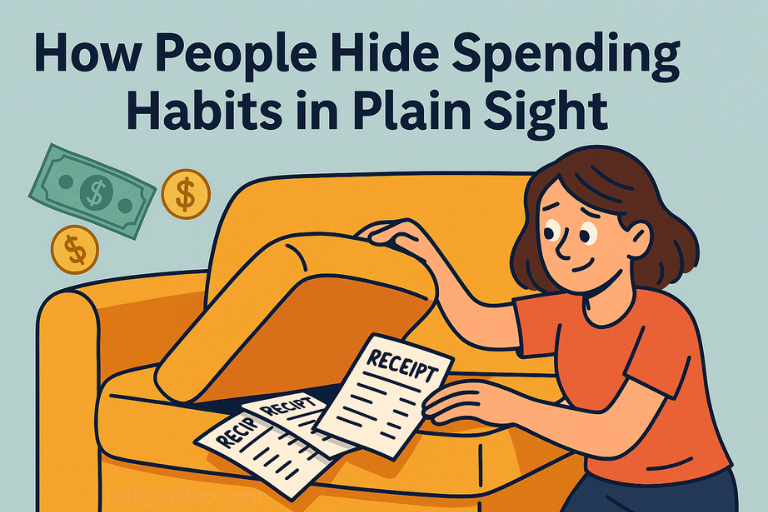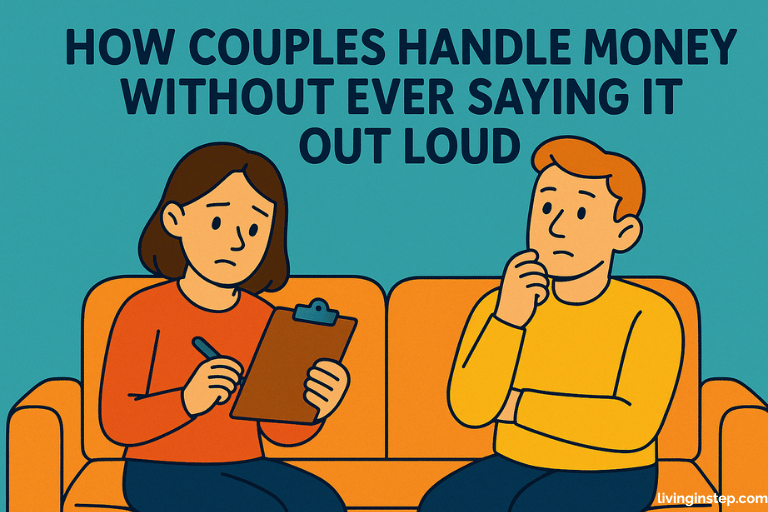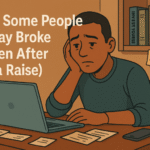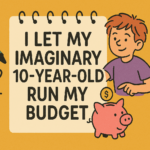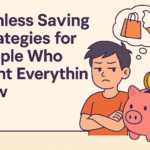You’d think earning more would solve money problems.
And on paper, it should.
But a lot of people hit a new income level… and nothing really changes.
The stress is still there.
The debt still creeps in.
And somehow, the money still disappears just as fast as it shows up.
I’ve been there.
I’ve earned more, and I’ve still felt broke.
Not just financially — but mentally.
Always behind, always a little anxious, always wondering where it went.
The problem isn’t just income.
It’s what happens when more money lands in your hands before you’ve changed how you relate to it.
More Income Doesn’t Mean Less Stress
There’s this idea that once you make enough, things will settle.
But the truth is, money doesn’t fix money stress.
At least, not on its own.
A study by the Financial Health Network found that nearly half of people earning over $100,000 still live paycheck to paycheck.
And not because they’re irresponsible.
But because money behavior doesn’t automatically shift when income does.
When you’ve spent years just trying to survive, it’s easy to carry those habits — and that mindset — into the next chapter.
The Invisible Rise of Lifestyle Creep
You don’t notice it at first.
A nicer place.
Better groceries.
An upgrade here, a dinner out there.
You’re not splurging — you’re just living a little better than before.
And that’s the catch.
You don’t see the moment where comfort turns into unconscious spending.
Or when “just this once” becomes the new normal.
You just look up one day and wonder why your bank account still feels tight.
It’s not greed.
It’s drift.
It’s what happens when you finally have breathing room… and nobody tells you how to hold onto it.
Why the Money Still Slips Away
Most of us aren’t taught what to do with “extra” money.
We’re taught how to earn it.
Maybe how to budget it.
But not how to sit with it.
Not how to slow down long enough to ask, “What do I actually want this money to do for me?”
So instead, we cope.
- We spend out of habit.
- We avoid looking too closely.
- We keep going, hoping the next raise will finally make things feel secure.
It rarely does.
Because the stress isn’t just about the numbers.
It’s about the emotional relationship underneath them.
What Actually Helps (That Doesn’t Involve a Budget App)
1. Get Clear on What “Enough” Means to You
Not in theory.
Not five years from now.
Right now.
How much is enough to feel safe?
To feel steady?
To breathe?
Write it down.
Make it real.
Because if you don’t, your brain will keep pushing the target further — and the pressure never lets up.
Don’t Wait for a Crisis to Check In
Most people don’t pause to look at their finances until something breaks.
But regular check-ins can change everything.
Not to micromanage.
Just to stay conscious.
Once a week.
Ten minutes.
No spreadsheets required.
Just ask: Am I using money in a way that supports how I want to feel right now?
Track What You Felt — Not Just What You Spent
Instead of only looking at where your money went, start tracking why it went there.
- Stressed?
- Tired?
- Trying to catch up with people around you?
Patterns show up fast when you track the emotion behind the decision.
And the more aware you are of those patterns, the easier it is to break them — before your income disappears under the weight of habits you never meant to build.
More money doesn’t fix the story you’ve been living with money.
And it doesn’t erase the pressure that comes from never feeling like you have enough.
But once you start looking past the numbers — at what’s actually driving your choices — everything starts to shift.
You stop feeling broke.
Even before the income grows again.
Note: This content is for entertainment purposes only and is not financial advice. Please consult a qualified financial advisor for guidance specific to your situation.

